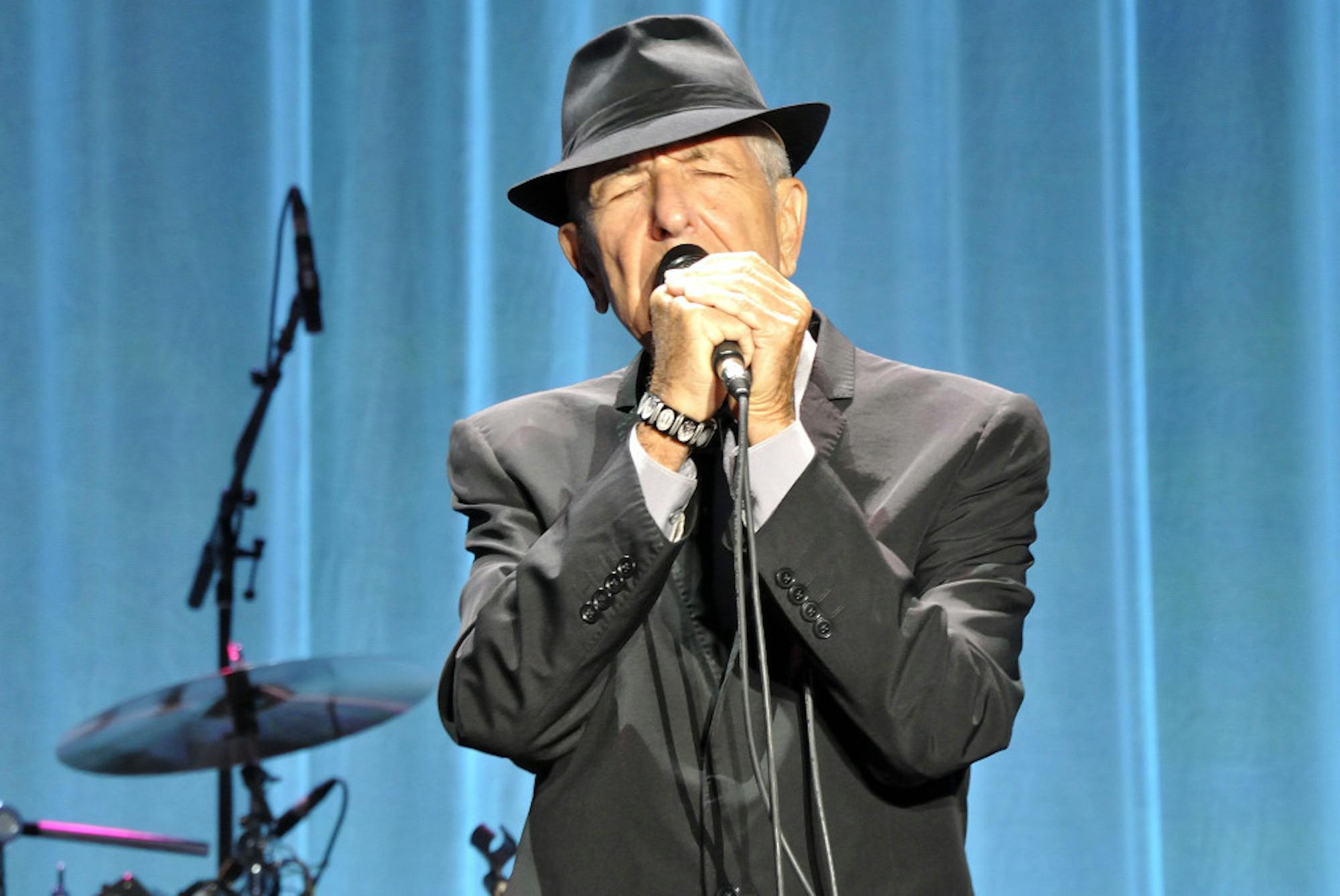Deliberately slow, never lethargic and just slinky enough to avoid being soporific, Leonard Cohen’s new album, “Popular Problems,” was released on Sept. 23 -- two days after Cohen's 80th birthday. The album proves that the singer-songwriter is not only timeless but musically transcendent. Opening with Cohen's distinct voice -- think gravel-verging-on-snarl -- in the appropriately-titled “Slow,” he purrs into the microphone, “I’m slowing down the tune/ I've never liked it fast/ You want to get there soon/I want to get there last.” Surprisingly, the nine track studio album (Cohen’s 13th) clocks in at only 36 minutes, but the artist uses his time to create an atmosphere of sound and musical complexity that can only be achieved by a legend. “Popular Problems” transports listeners and pulls them into a world that is as untouched by time as Cohen’s musical relevance. At his age, Cohen has no need to barrel ahead and blast past his competition. As he states with a seductive grumble, “I've always liked it slow/ Slow is in my blood.”
If Cohen feels a need to compete in a musical world whose speed increases as exponentially as the internet bandwidth used to distribute songs, it's not showing. If anything, his album is a purposeful transgression, a lackadaisical call to action that is more an invitation to slow down, like Cohen’s molasses-speed rhythms. While the album is clearly part of Cohen’s constant evolution as an artist, certain tracks feel as though they are attempting to pull listeners back to a different time and place.
For instance, the second track “Almost Like the Blues,” features signature jazzy soul complete with a horn section and a methodical piano in the background. Meanwhile, the third track, “Samson in New Orleans,” is more of the moody and folksy variety that harkens back to “Various Positions” (1984) and “Recent Songs” (1979). This track moves with a different kind of slowness, tinged with deep-seated Cohen-variety melancholy and hints at Americana culture, with lines like “There’s a woman in the window/ There’s a bed in Tinseltown/ I’ll write you when it’s over/Let me take this temple down...she was better than America/ that’s what I heard you say.” The song is almost deliberately paralleling Cohen’s most famous track, “Hallelujah” (1984), an homage to his roots.
He continues to pull the listeners into the space of an older era with the fourth track, “A Street.” This track breathes like a Johnny Cash song, with a dark near-spoken vocal performance by Cohen and a steady drum beat. Cohen’s signature lyrics have as many strata as the Grand Canyon’s rock layers, and it is difficult to pick out all the subtleties as he sings “I see the ghost of culture with numbers on his wrist/Salute some new conclusion which all of us have missed.” Hyper-aware of the speeding world around him, he surreptitiously digs at the vicissitude of war and the modern era, burying his critiques in a song about lost love.
Cohen is both pulling out all the stops and holding back, displaying, at times, a dizzying musical restraint before his background singers' voices swell and he launches into another powerful crescendo. Much of the album is understated, with lyrics that are shrewdly simple; in “Did I Ever Love You?” he repeats the cutting words “Did I ever love you?/ Did I ever need you?/Did I ever fight you?/Did I ever want to?”
Cohen’s Canadian roots are apparent in “My Oh My” where he seems to channel the baritone of Gordon Lightfoot combined with the basal musicality and instrumentation of Neil Young, complete with twangy guitar chords and a loneliness that oozes from the speakers.
Cohen never fears venturing out into new musical territory, throwing in background vocals with an Arabic chant, and the repeated word “Salaam” (Arabic for peace) while he sings again against the synth-heavy background in "Nevermind." The newer vibe hints at the influences of his producer Patrick Leonard, who is recognizable for his production of several Madonna albums. Rounding off the album with “You Got Me Singing,” Cohen pairs a bright violin and grumbling vocals, musing on lost experiences while reflecting on the present. In a final punch to his (perhaps hopeless) pleas for time to slow down, he deliberately self-references: “You got me singing that Hallelujah hymn.” The unassuming lyrical genius has pulled one over on listeners again. But he makes sure they’re in on the joke, drawing them back to the present once inoculated with a healthy dose of the past.
Leonard Cohen burns slow and bright on powerful new album

Leonard Cohen proves his timelessness through songwriting genius.





